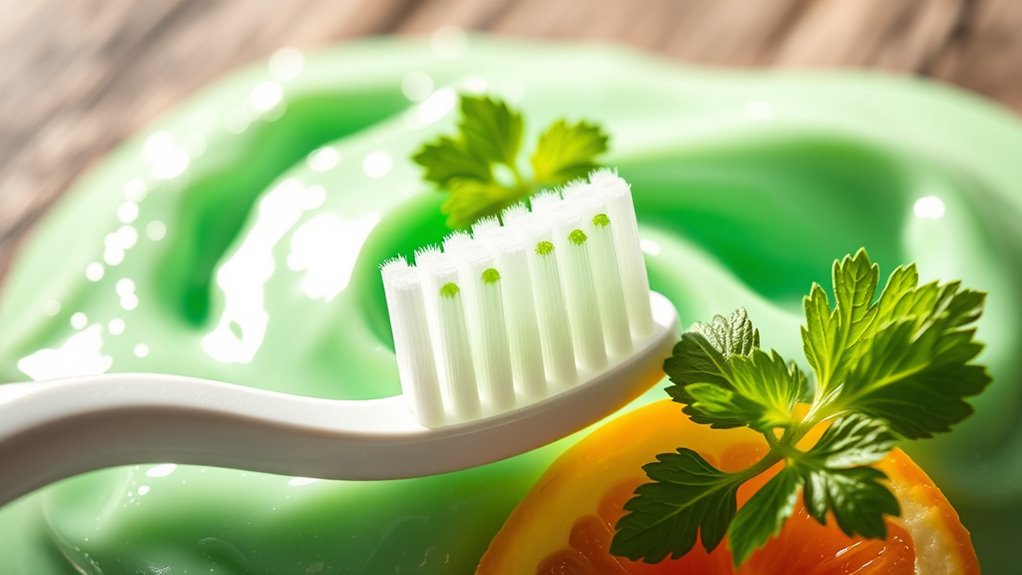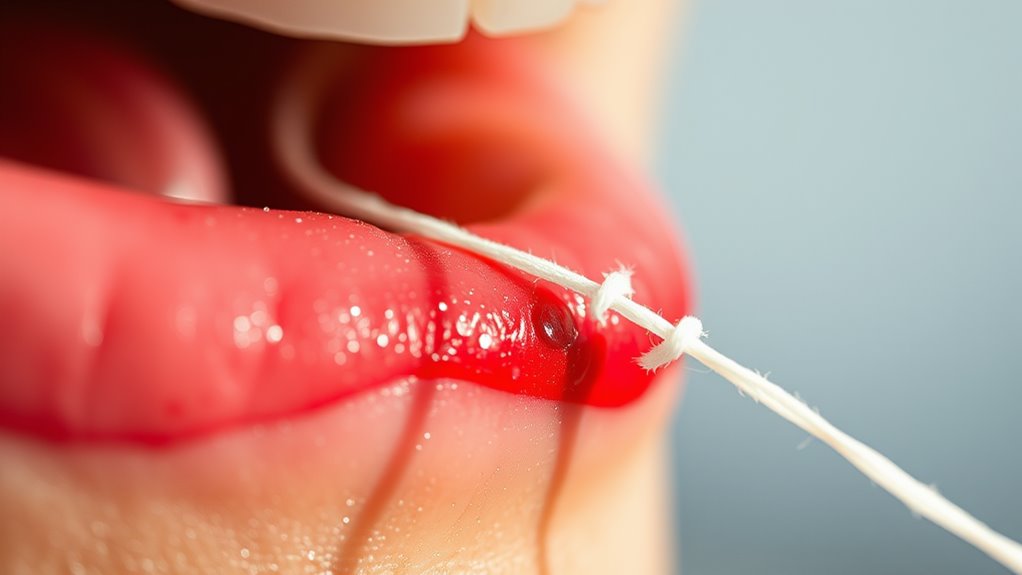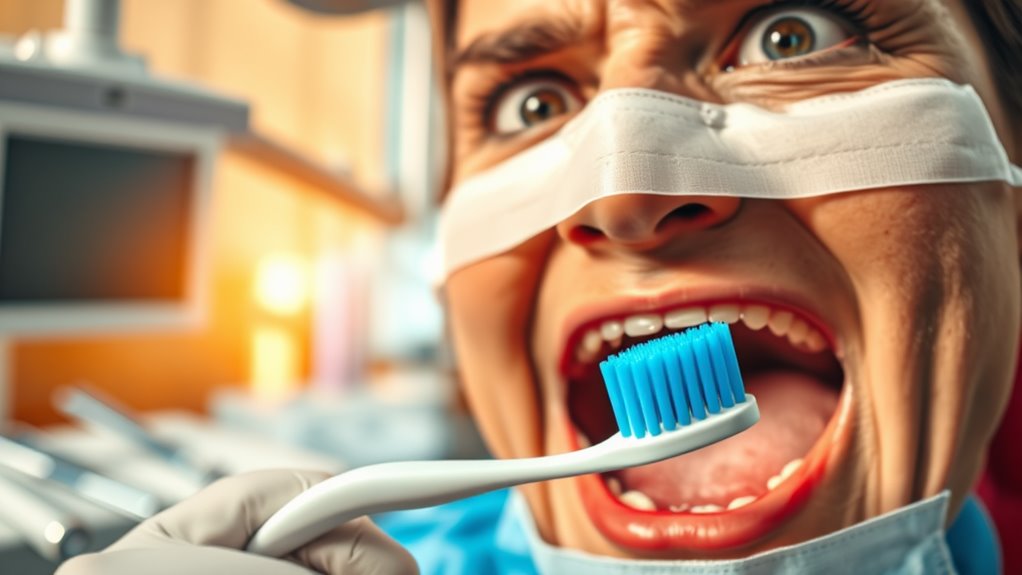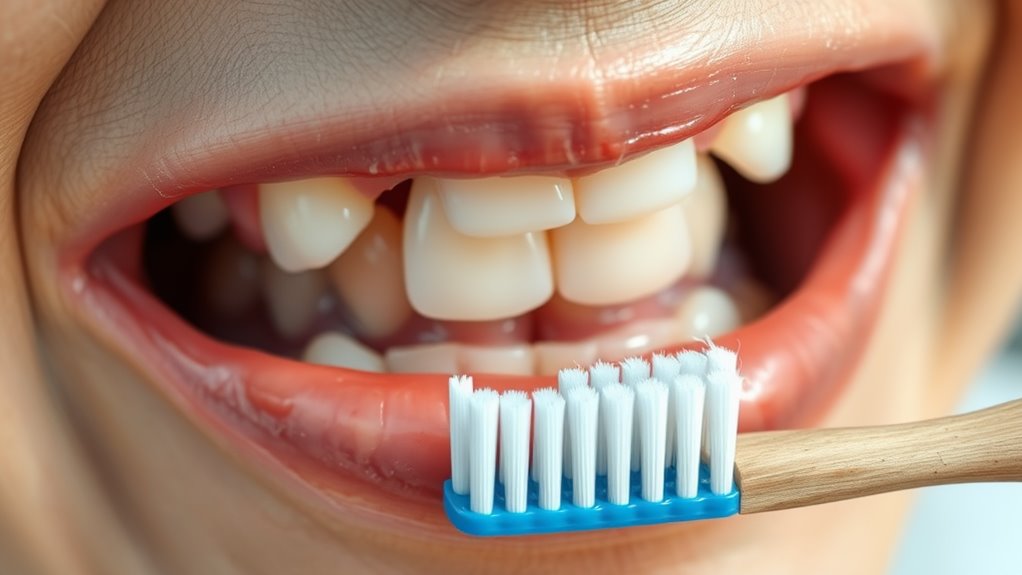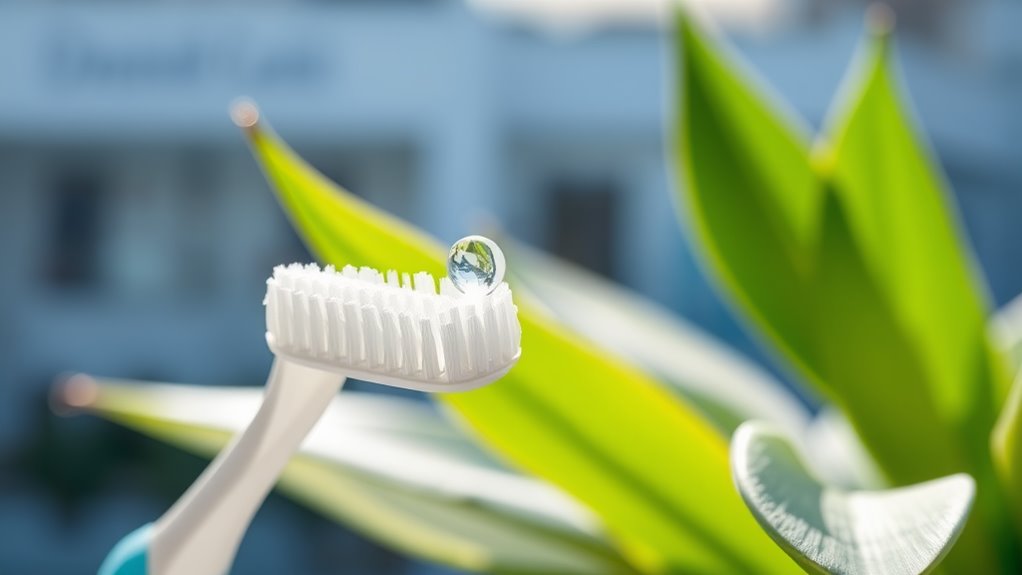My Gums Used to Bleed-Until I Tried This Easy Change
If your gums used to bleed, minor adjustments can make a significant difference. Start using a soft-bristle toothbrush and brush gently but thoroughly. Incorporate daily flossing to reduce inflammation and prevent plaque buildup. Consider using an antimicrobial mouth rinse after brushing to help eliminate bacteria and improve gum health. Additionally, focus on a balanced diet rich in vitamins C, calcium, and antioxidants. If you’re curious about more strategies, there’s plenty more to explore.
Understanding Gum Bleeding
Understanding bleeding gums is crucial for maintaining oral health, especially since it can signal underlying issues.
If you notice gum bleeding, it’s important to identify potential causes like gingivitis or improper brushing techniques.
Follow these gum bleeding tips: use a soft-bristle toothbrush, floss regularly, and consider saltwater rinses.
These steps can help reduce inflammation and promote healthier gums. Additionally, maintaining good oral hygiene is essential for preventing serious systemic diseases linked to gum health.
Don’t ignore persistent symptoms.
The Importance of Proper Oral Hygiene
While you may not think about it often, maintaining proper oral hygiene is essential for preventing gum disease and other dental issues.
Regular brushing and flossing remove plaque, the primary contributor to gum inflammation. By dedicating time to your oral care routine, you can significantly reduce the risk of bleeding gums, cavities, and long-term complications that affect your overall health. Additionally, consistent oral hygiene helps prevent plaque and tartar issues that can lead to further gum problems.
Prioritize your dental hygiene daily.
Incorporating a Mouth Rinse
In addition to proper brushing and flossing, incorporating a mouth rinse can significantly enhance your oral hygiene routine and help reduce the risk of bleeding gums.
Choose an antimicrobial mouth rinse to eliminate bacteria and promote gum health. Use it daily after brushing to reach areas your toothbrush may miss. This simple addition can lead to noticeable improvements in your gum condition. Additionally, incorporating a mouth rinse aligns with brushing before breakfast, which benefits oral health by removing overnight plaque and bacteria.
The Role of Diet in Gum Health
A balanced diet plays a crucial role in maintaining gum health and preventing bleeding. Nutrient-rich foods, particularly those high in vitamin C, calcium, and antioxidants, support gum tissue repair and combat inflammation.
Additionally, staying hydrated helps maintain saliva production, which protects against bacteria. Increasing intake of Vitamin C-rich fruits can further enhance gum integrity and help prevent gum disease.
Minimize sugar intake to reduce plaque buildup, as these dietary choices directly impact your overall gum health and resilience.
Regular Dental Check-ups and Their Benefits
Regular dental check-ups are essential for maintaining gum health and preventing complications such as bleeding gums.
These visits offer numerous benefits, including:
- Early detection of gum disease
- Professional cleaning to remove plaque and tartar
- Personalized oral hygiene advice
- Monitoring changes in your oral health
Additionally, early detection of systemic health issues through regular visits can enhance your overall well-being, as untreated dental problems can lead to serious health concerns.
